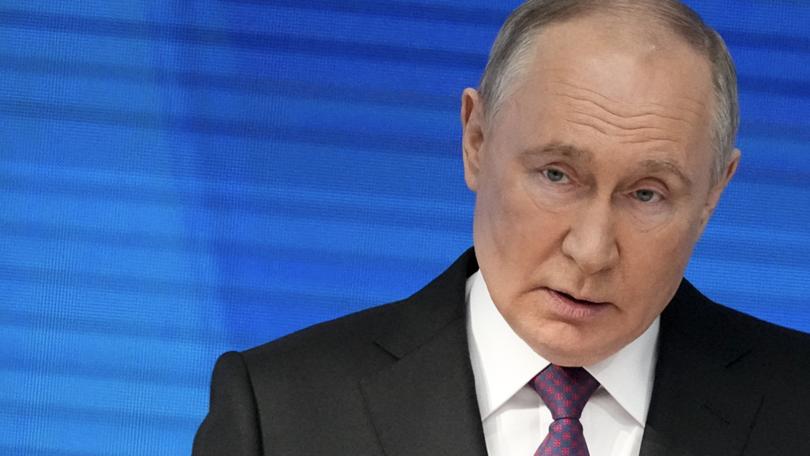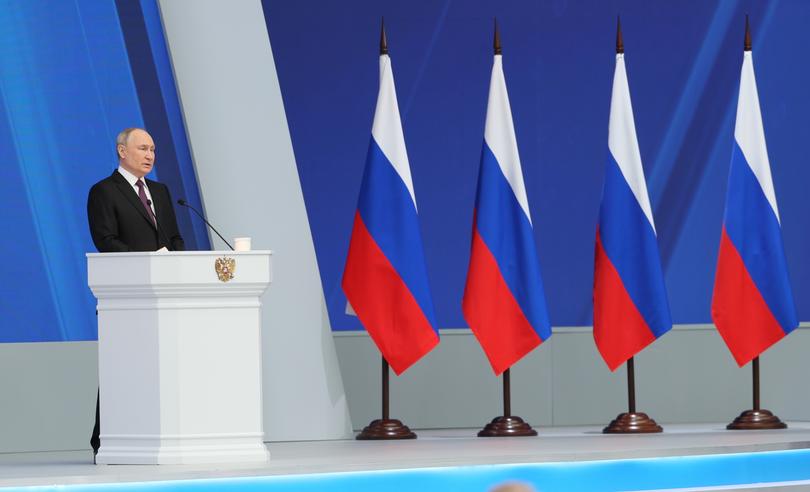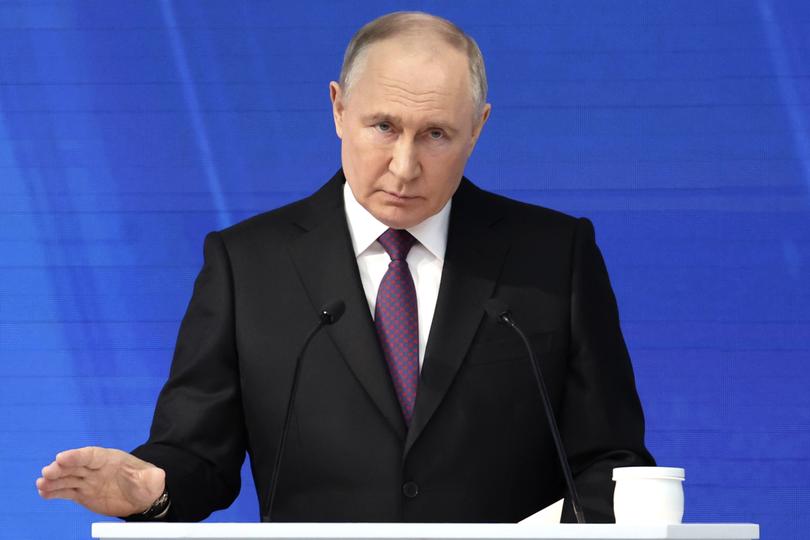Vladimir Putin warns Western troops in Ukraine risks nuclear war
President Vladimir Putin has warned the West against a deeper involvement in the fighting in Ukraine, saying it's fraught with the risk of a nuclear conflict.

Russian President Vladimir Putin has vowed to fulfil Moscow’s goals in Ukraine and sternly warned the West against deeper involvement in the fighting, saying that such a move is fraught with the risk of a global nuclear conflict.
Putin’s warning came in a state-of-the-nation address before the country’s March election he is all but certain to win, underlining his readiness to protect Russian gains in Ukraine.
In an apparent reference to French President Emmanuel Macron’s statement this week that the future deployment of Western ground troops to Ukraine should not be “ruled out”, Putin warned it would lead to “tragic” consequences for the countries who decided to do that.
Sign up to The Nightly's newsletters.
Get the first look at the digital newspaper, curated daily stories and breaking headlines delivered to your inbox.
By continuing you agree to our Terms and Privacy Policy.
Putin noted that while accusing Russia of plans to attack NATO allies in Europe, Western allies were “selecting targets for striking our territory and selecting the most efficient as they think striking assets and talking about the possibility of sending a NATO contingent to Ukraine”.
“We remember the fate of those who sent their troop contingents to the territory of our country,” the Russian leader said on Thursday.
“Now the consequences for the potential invaders will be far more tragic.”
Speaking before an audience of MPs and top officials, Putin said the West should keep in mind that “we also have the weapons that can strike targets on their territory, and what they are now suggesting and scaring the world with, all that raises the real threat of a nuclear conflict that will mean the destruction of our civilisation”.
Putin emphasised that Russia’s nuclear forces were in “full readiness”, saying the military had deployed potent new weapons, some of them tested on the battlefield in Ukraine.
At the same time, he rejected Western leaders’ statements about the threat of a Russian attack on NATO allies in Europe as “ravings” and again dismissed Washington’s claim that Moscow was pondering the deployment of space-based nuclear weapons.
In his speech that focused heavily on economic and social issues before the March 15-17 presidential vote, Putin argued that Russia was “defending its sovereignty and security and protecting our compatriots” in Ukraine, charging that the Russian forces have the upper hand in the fighting.
He hailed Russian soldiers and honoured those who were killed in fighting with a moment of silence.
Putin has repeatedly said that he sent troops into Ukraine in February 2022 to protect Russian interests and prevent Ukraine posing a major security threat to Russia by joining NATO.

Kyiv and its allies have denounced it as an unprovoked act of aggression.
The Russian leader has repeatedly signalled a desire to negotiate an end to the fighting but warned Russia would hold on to its gains.
Putin, 71, who is running as an independent candidate in the March presidential election, relies on the tight control over Russia’s political system that he has established during 24 years in power.
Prominent critics who could challenge him have either been imprisoned or are living abroad, while most independent media have been banned, meaning that Putin’s re-election is all but assured.
He faces token opposition from three other candidates nominated by Kremlin-friendly parties represented in parliament.
Russia’s best-known opposition leader Alexei Navalny, whose attempt to run against Putin in 2018 was rejected, died suddenly in an Arctic prison colony earlier this month, while serving a 19-year sentence on extremism charges.
Navalny’s funeral is set for Friday.
